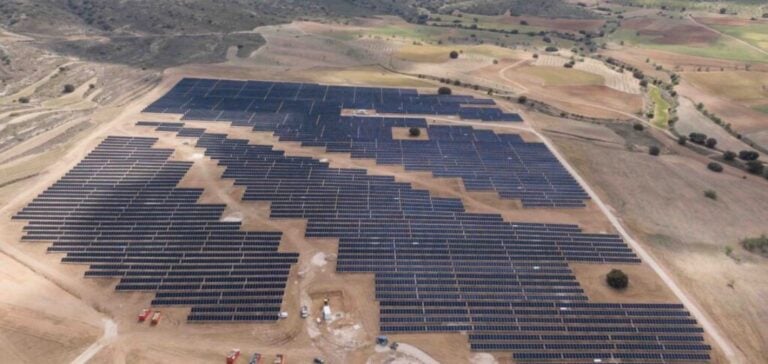Q ENERGY launches the construction of a 52 MWp solar power plant, “Cabrovales 1”, in the Extremadura region of Spain.
The plant will comprise over 96,000 photovoltaic modules equipped with solar tracking systems to optimize electricity production.
The project is designed to meet the energy needs of around 27,000 households.
The company expects this new solar capacity to help reduce CO2 emissions by 23,000 tonnes per year.
Located on 100 hectares in the municipality of Fuente de Cantos, province of Badajoz, the site represents a significant investment in the renewable energies sector.
The construction and operation of the plant involve local companies, strengthening the regional economy.
Commissioning of the facility is scheduled for 2025, marking a milestone in Q ENERGY ‘s strategy to expand its solar production portfolio in Spain.
Local partnerships and growth prospects
Involving local stakeholders is at the heart of Q ENERGY’s strategy for this project.
Collaboration with local authorities and the involvement of regional companies in the construction process are aimed at boosting the local job market and maximizing economic impact.
Eduardo de la Hera, Head of Development Iberia, mentions that “Cabrovales 1” is one of many upcoming projects, including a pipeline of over 6 GW for its solar projects in Spain.
This ongoing development of photovoltaic infrastructures is part of a broader strategy to diversify energy sources and strengthen decentralized production capacities.
The Spanish renewable energy market currently benefits from a favorable regulatory framework, encouraging investment in solar and wind projects.
Q ENERGY’s project is in line with this dynamic, taking advantage of the tax incentives and administrative facilities offered by the Spanish government.
Spain’s rapidly expanding solar sector sees companies like Q ENERGY exploiting opportunities to increase energy production while minimizing operating costs through technological innovation.
Photovoltaic Development Context and Challenges
Spain, with its abundant sunshine and strategic geographical position, represents fertile ground for the development of large-scale solar projects.
Projects such as “Cabrovales 1” play a crucial role in achieving national energy objectives, focused on increasing the share of renewable energies in the energy mix.
The flexibility of the grid management system and technological advances are helping to overcome the challenges of intermittency and improve the integration of solar power into the national grid.
The strategy of diversifying energy sources is gaining momentum as Spain continues to strengthen its renewable electricity infrastructure.
Recent solar expansion projects show a clear trend towards reducing dependence on imported energy sources.
This approach, while stimulating innovation and investment, helps to improve energy security and maintain competitive energy costs.






















